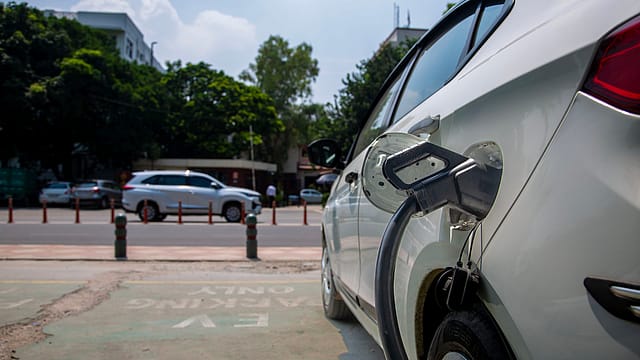India needs entry-level electric cars to drive EV penetration: Bain
ADVERTISEMENT

India's electric car market needs mass-market models to rev up EV penetration from 1.5% currently to over 20% by 2030, according to a report by Bain & Company.
The country's EV penetration in the passenger vehicle segment is around 1.5%, due to higher prices, shorter range, and lesser power. EV cars cost roughly 50% more, have 50%-60% lower range, and around 30% less engine power as compared to comparable ICE models, the report says.
EV car penetration could jump manifold from about 1.5% to 20% by 2030, if carmakers undertake significant interventions, according to Bain. In comparison, the U.S. car market had 6%-8% EV penetration in 2022, driven by a wide range of mass-market EV models for customers to choose from.
Accelerated EV adoption in India will necessitate price-competitive EV car models, which will further be enabled by a decline in battery prices as the market attains scale, as well as EV-first platforms for the mass market, the management consulting firm says.
OEMs need to develop new products at competitive price points, expand dealer networks, build software capabilities, and scale charging infrastructure, says Bain. Fortune India reported about the crumbling state of India's EV charging infrastructure in September.
A wide charging ecosystem will be important to drive EV adoption, not just within cities but across key national highways and major tourist destinations, given electric cars have shorter ranges than ICE models, which especially affects intercity travel, as per the Bain report.
India's EV market experienced an uptick in investment in the past two years, with $1.5-$2 billion of capital raised in each of 2021 and 2022—a sharp increase from earlier years (less than $0.5 bn). These investments have predominantly been directed into OEMs such as Tata Motors, Mahindra & Mahindra, and Ola Electric among others.
Bain & Company expects a reliable residual value management mechanism to fuel EV car penetration. A secondary market is essential for EVs due to the higher upfront costs of cars. However, given the high degree of nascency and rapid evolution of product portfolios, natural development of secondary markets could be substantially delayed in the Indian context, explains Bain. To speed up development, OEMs need to develop residual value management programmes via buybacks or other schemes, to provide comfort around liquidity to consumers, it suggests.
In October, Fortune India reported that German luxury carmaker Mercedes-Benz is offering a residual value guarantee for those who want to exchange their EVs after five years, similar to what is offered for ICE variants.
Further scaling business-to-business (B2B) partnerships will also be key to accelerate EV penetration in commercial four-wheeler fleets, according to Bain. Uber recently signed a deal to procure 25,000 EVs from Tata Motors, and BluSmart ordered 500 MG ZS EVs.